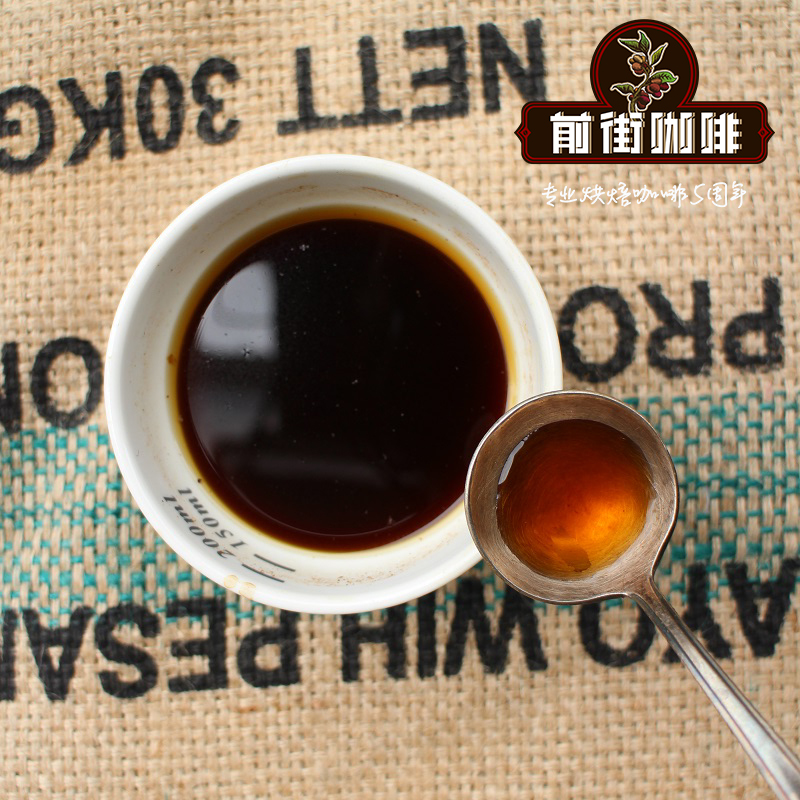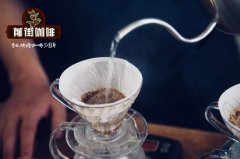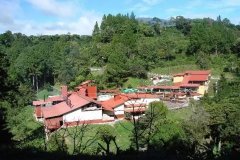What is the organic fair trade of Peruvian coffee? What's the flavor of organic coffee?

Professional coffee knowledge exchange more coffee bean information please follow the coffee workshop (Wechat official account cafe_style)
Most farmers in Peru own a small plot of land (about 2 hectares per person). Like this kind of organic coffee, Peruvian coffee is mostly processed and sold through cooperatives. Although there are a variety of coffee of different quality and flavor, generally speaking, Peruvian coffee has a complete body and a balanced taste. Therefore, this kind of coffee is very suitable as the basic ingredient of comprehensive coffee.
70% of Peru's coffee is produced in the north of the border, mainly Arabica, and most of it is organic coffee; coffee exports account for a high proportion of Peru's agricultural production. The coffee varieties grown in Peru are mainly Bourbon, Typica and Caturra. More than 1/3 of Peru's population depends on agriculture for a living, and most of them are self-employed small farmers. Because of the narrow and long land, the large gap between the height of land, the long distance between cities, and the high cost of transportation, the groups organized by small farmers are particularly important.
Since 2005, Fairtrade labelling International has been assisting Peruvian farmers to enter the fair trade system, and Peru is now one of the largest exporters of organic and fair trade coffee in the world.
Fair trade covers many industries and demands the whole industrial chain, from the producers at the source, the traders and road dealers who handle the goods in the middle, to the consumers at the end, the actions of every link should be in line with the principle of fairness and impartiality. therefore, it is not easy to obtain fair trade certification, such as allowing farmers to have a reasonable income, farmers' farming should be environmentally friendly, and traders should let farmers have a reasonable income. Can help improve their lives. Wait, you need to meet a lot of specifications in order to be certified. If they can have a better and better quality of life, farmers will pay more attention to the sustainability of the environment and industry.
In the past, when farmers in equatorial countries in South America wanted to expand their acreage to increase their income, they cut down the rainforest directly without thinking, causing the Amazon's primitive rainforest to disappear 750000 square kilometers since the 1970s. For the sake of sustainable forest, the current planting will no longer cut down the original forest, but will instead plant coffee trees in the shade. At present, more than half of the coffee in Peru is shaded, which can not only sustain the rainforest, but also improve the quality of coffee.
Starting from Europe and the United States, the consumer market's concept of environmental protection awareness, social justice, and personal health has become popular. at present, there is a huge demand in the world organic market, and Peruvian small farmers who seriously manage all kinds of organic agricultural products. the sky is getting wider and wider. The Peruvian government understands that organic agriculture is self-serving, and plans supporting measures in addition to encouraging small farmers to form associations or cooperatives. Peru is now the fifth largest exporter of organic agriculture.
Cajamarca is a coffee-producing region in northern Peru that covers the northern tip of the Andes. Due to the passage of the equator and suitable soil, the coffee quality in the area is quite good.
Peruvian coffee and cocoa growers are mostly small farmers with only one to three hectares of land, many of whom live in remote mountainous areas, and transportation alone takes a lot of time. Small coffee farmers in Kahakama area usually have good technical and organizational support.
Production area: Cajamarca, Peru
Manor: Sol Y Cafe
Altitude: 900-2000m
Treatment: washing
Certification: organic Fair Trade
Flavor: orange, lime, grapefruit and honey green tea
Qianjie coffee: Guangzhou bakery, the store is small but a variety of beans, you can find a variety of unknown beans, but also provide online store services. Https://shop104210103.taobao.com
Important Notice :
前街咖啡 FrontStreet Coffee has moved to new addredd:
FrontStreet Coffee Address: 315,Donghua East Road,GuangZhou
Tel:020 38364473
- Prev

Introduction of Cepro Yanesha COOP of Yanisha Cooperative in Chanchamayo producing area of Central Peru
Professional coffee knowledge exchange more information about coffee beans Please follow the coffee workshop (Wechat official account cafe_style) Coffee is one of Peru's largest yielding staple crops. In addition, Peru accounts for the largest share of the organic and fair trade coffee market and is one of the largest coffee exporters in the world. Peru has a variety of regions and climates, and produces a lot of
- Next

Introduction to Casa Ruiz of Caesar Louise Manor in Panama
Panama | Casa Louis Manor Casa Ruiz Casa Luis Casa Ruiz Cooperative of Panama, founded in 1979, is one of the most famous cooperatives in the Balu Volcano Bokui District, headquartered in the crony valley of the Baru Volcano. The family has been passed on for three generations and has more than 300 small family farmers.
Related
- Detailed explanation of Jadeite planting Land in Panamanian Jadeite Manor introduction to the grading system of Jadeite competitive bidding, Red bid, Green bid and Rose Summer
- Story of Coffee planting in Brenka region of Costa Rica Stonehenge Manor anaerobic heavy honey treatment of flavor mouth
- What's on the barrel of Blue Mountain Coffee beans?
- Can American coffee also pull flowers? How to use hot American style to pull out a good-looking pattern?
- Can you make a cold extract with coffee beans? What is the right proportion for cold-extracted coffee formula?
- Indonesian PWN Gold Mandrine Coffee Origin Features Flavor How to Chong? Mandolin coffee is American.
- A brief introduction to the flavor characteristics of Brazilian yellow bourbon coffee beans
- What is the effect of different water quality on the flavor of cold-extracted coffee? What kind of water is best for brewing coffee?
- Why do you think of Rose Summer whenever you mention Panamanian coffee?
- Introduction to the characteristics of authentic blue mountain coffee bean producing areas? What is the CIB Coffee Authority in Jamaica?

